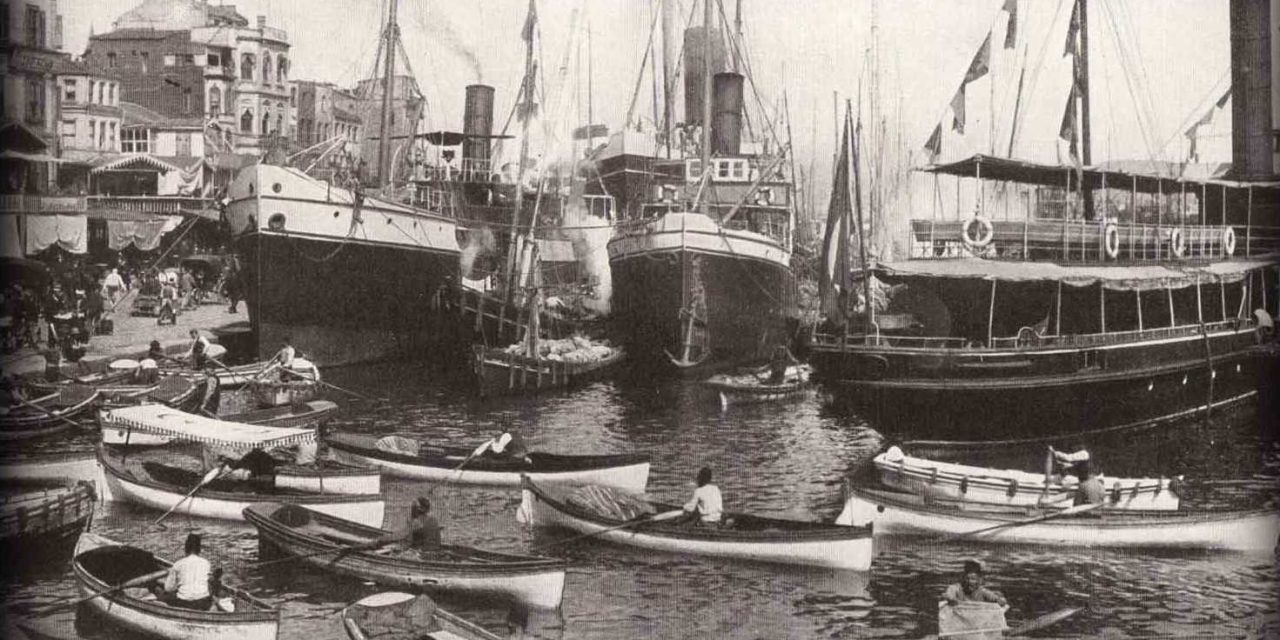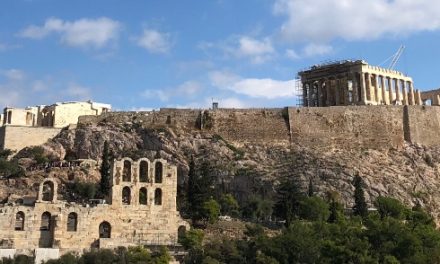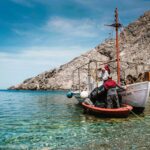The Сentre of Maritime History of the Institute for Mediterranean Studies was founded in 2017 by Professor Gelina Harlaftis and Dr Apostolos Delis, and is the only research unit in Greece exclusively dedicated to the study of the historical evolution of the shipping industry. Τhe introduction of Greek Maritime History to academia in the 1990s posed for the first time a coherent scientific approach for the study of the historical evolution of the shipping industry. As we read in the volume Greek Maritime History – From the Periphery to the Centre, οver the last decades, Greek Maritime History has carved an impressive course from a handful of studies, dispersed and fragmented, into a prolific and comprehensive body of literature. Most importantly, Greek Maritime History in its current state, is mature enough to encompass the multilevel human interaction with the sea and make a productive contribution to the international research agenda. Furthermore, it provides an interpretational framework which is not exhausted in the Greek paradigm but can be implemented in different geographical, temporal and cultural contexts.
Under the guidance of Gelina Harlaftis, who holds the sole chair of Maritime History in Greece, a wide community of researchers and maritime historians who have been engaged in systematic and continuous interaction with international academia, created a de facto forum to develop international dialogue and collaboration. The boom of Maritime History and the rising interest among younger scholars and historians have created the academic cluster that is recently housed at the designated Centre of Maritime History of the Institute of Mediterranean Studies (IMS) in Crete.
Maritime studies in Greece are in a reciprocal relationship with the international agenda and have contextualised existing approaches towards Maritime History. The most resonant is the history of seas and oceans – that is, thalassology – which looks at the perception of the sea, beyond political borders. The sea is not conceived as a mere space that surrounds the land, but as a dynamic agent of change. This approach has been mostly implemented in the history of the Eastern Mediterranean and the Black Sea and has triggered a level of interaction between Maritime History and other academic disciplines, such as Economic Geography, Economic Sociology and Environmental History.
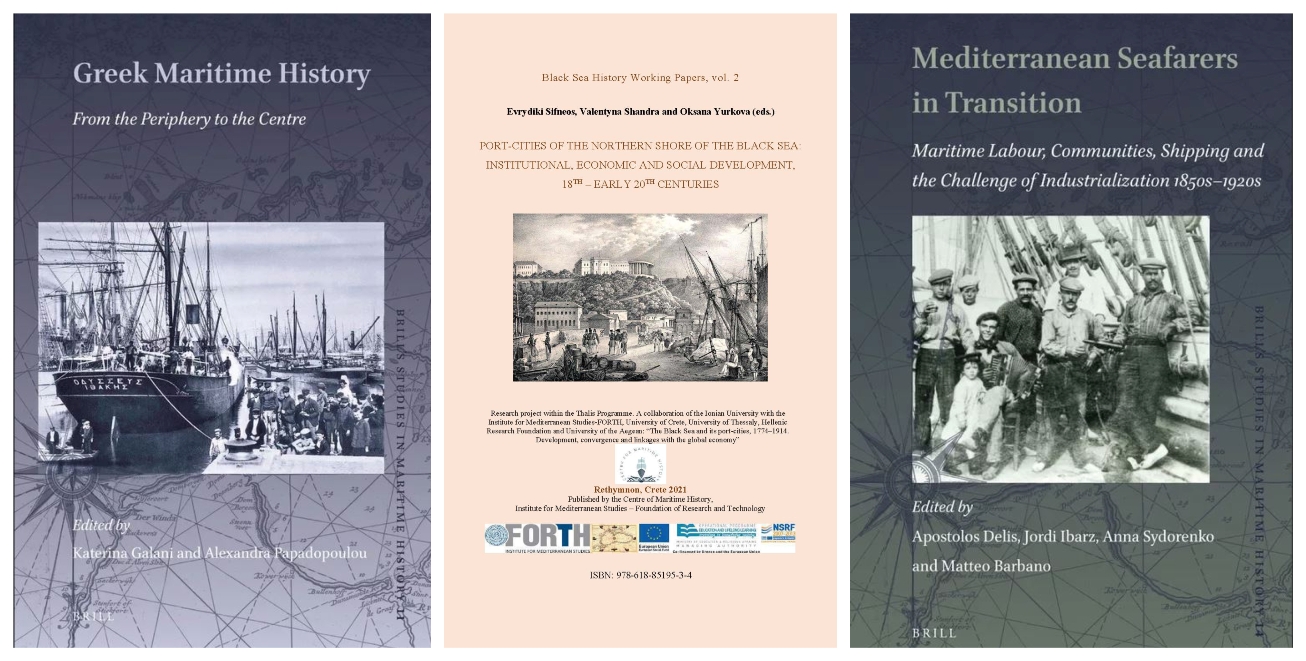
A definitive factor in the development of Maritime Studies has been the outreach to primary sources: an abundance of maritime archives were scattered across the maritime communities of the Aegean and the Ionian seas as well as an unprecedented outreach for archival sources was launched in major Mediterranean, Atlantic, Northern European and Black Sea ports following the routes of Greek ships in international destinations. This overwhelming task became feasible through large-scale research projects and international collaborations that combined macro and micro analysis in order to frame the larger picture but also cast light on the qualitative features of Greek shipping. The management and process of such a rich and versatile material was made feasible through the creation of maritime databases. The design of the databases was conceived through collaboration with other large-scale quantitative projects in Maritime History such as the Atlantic Canada Shipping Project, the Navigocorpus and the ‘Sound Toll Registers’ project.
Among the current research projects at the Centre for Maritime Studies are “SeaLiT: Seafaring Lives in Transition”, a project that explores the transition from sail to steam navigation and the effects of this technological innovation on seafaring populations in the Mediterranean and the Black Sea, between the 1850s and the 1920s, and NAVS, a project aims to bring out Greek maritime heritage through the use of new cutting-edge technologies: historical and traditional shipbuilding is digitally recorded and captured with a faithful and detailed three-dimensional display.
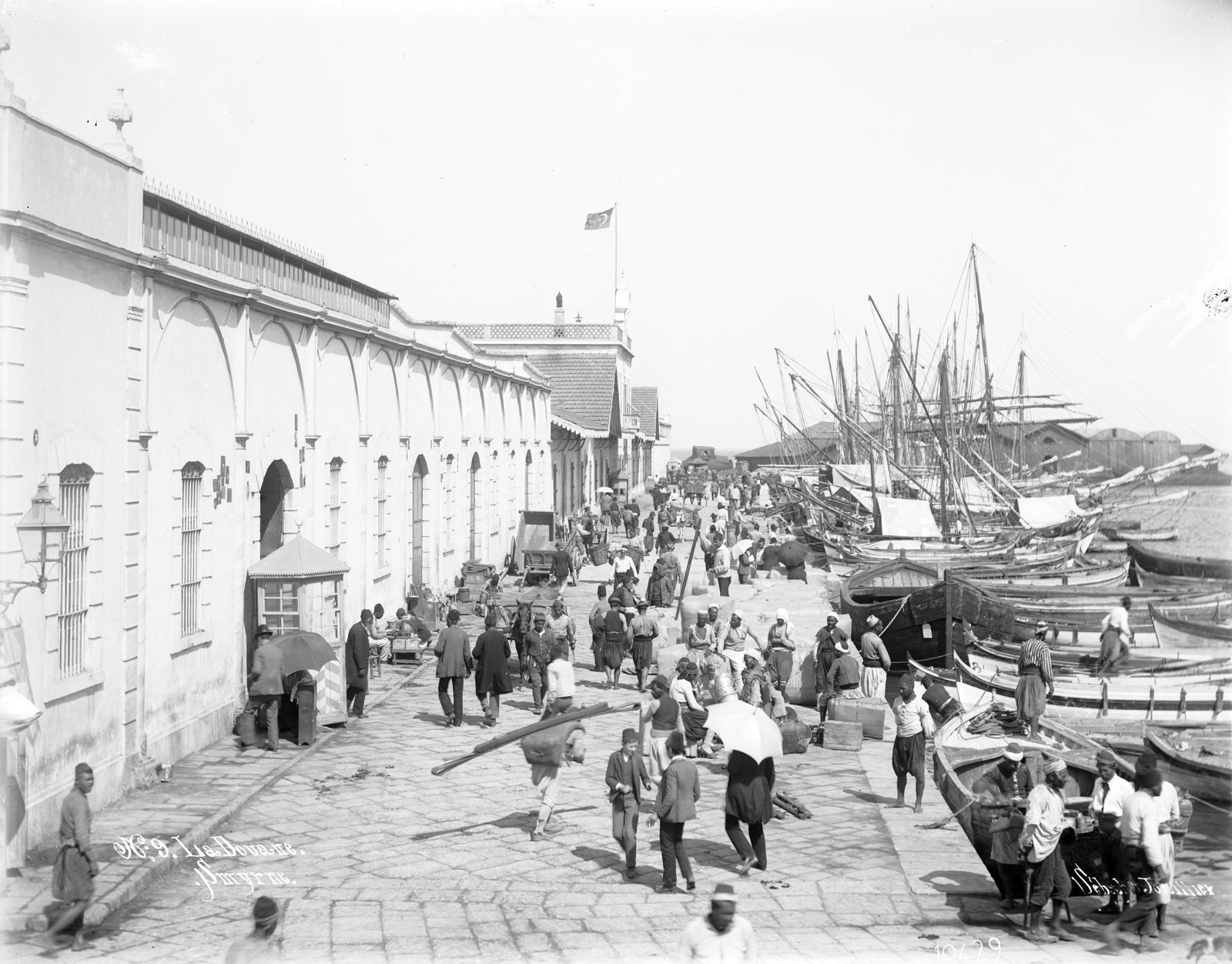
The international recognition of Greek Maritime History as a discrete scientific field dates back several years and belongs to the late Skip Fischer, professor at the Memorial University of Newfoundland. Fischer, due to his devotion and deep understanding of maritime history, as well as his perception of the field as editor-in-chief of the International Journal of Maritime History over several decades, had realised that Greek maritime historiography had flourished and borne fruit, and that a comprehensive presentation of its findings was timely, hence the publication of the volume Greek Maritime History – From the Periphery to the Centre. This book brings together a wide group of historians, researchers and scholars at different stages of their careers, who have been engaged in topics that are closely related to maritime history.
The research team of the Centre of Maritime History explores the history of the seas and focusing on the maritime history of the Mediterranean and the Black Sea from the ancient times to the present day in the following broader fields:
- economic and social maritime activities (seaborne trade, navigation, ports, shipping businesses, fishing, maritime communities, maritime labour, shipbuilding and maritime technology);
- geopolitics, war and violence at sea (maritime empires, naval forces, piracy);
- scientific activities related to the sea (oceanography, history of navigation);
- leisure and tourism related to the sea,
- the promotion of maritime literature and arts through the location, preservation, classification, processing and divulgation of archival sources related to maritime history, the publication of scholarly works in Greece and abroad and the organization of seminars, conferences and postgraduate studies programs.
The activities of the Centre of Maritime History are supported by the specialized maritime history library and archives of the Institute for Mediterranean Studies/FORTH.
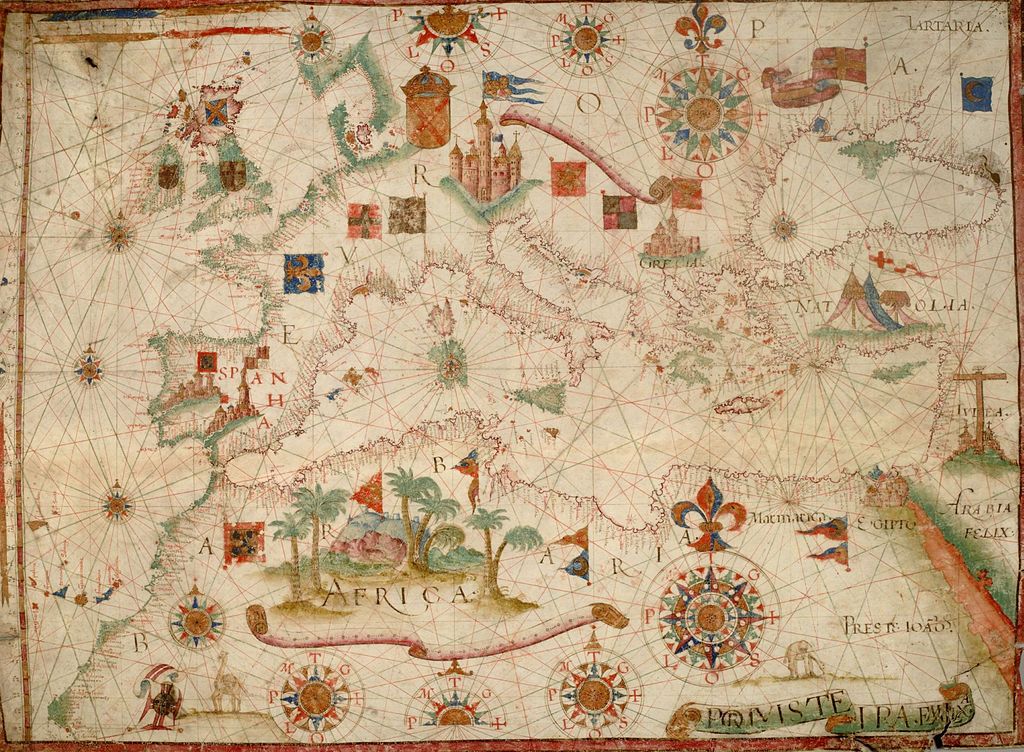
Institute for Mediterranean Studies
The Institute for Mediterranean Studies (IMS) – based in Rethymno, Crete – was founded in 1985 and is one of the 10 Institutes of the Foundation for Research and Technology — Hellas (FORTH), one the leading research institutions in Greece. IMS’s purpose is to promote research in the humanities, social sciences, as well as the application of science and technology on cultural heritage and the environment. It is distinguished for its research in history and culture and is the only research or university institution in the country to have been awarded five European Research Center (ERC) Grants (2016, 2017, 2018, 2019, 2023) the only ever awarded to the humanities in Greece.
The IMS research programs focus on the history and culture of Greece and other countries of the Mediterranean and the Black Sea in various historical periods, from prehistory to modern times. To date, its research focuses on three research axes, 1) Mediterranean History, 2) Mediterranean culture, 3) Geoinformatics technology for Culture and Environment, and is undertaken by ten teams of researchers based in the Institution’s research sections, centers, and labs.
Gelina Harlaftis, Professor of Maritime History in the Department of History of the Ionian University has been the Director of the Institute of Mediterranean Studies of the Foundation of Research and Technology-Hellas (FORTH) since 2017.
The Institute for Mediterranean Studies will host the 6th Conference of the Mediterranean Maritime History Network (MMHN) in Rethymno in May 2024, Originally planned to take place in 2022, the event was rescheduled due to restrictions of COVID-19 pandemic. MMHN conferences are international events aimed to bring together historians, researchers and students to promote the development of Mediterranean Maritime History, fostering an exchange of ideas and knowledge.
I. L.
TAGS: BUSINESS & TRADE | RESEARCH | SHIPPING

